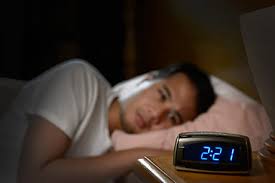- Insomnia Part 1 of 3
- Insomnia Part 2 of 3
- Insomnia Part 3 of 3

Insomnia Part 2 of 3
As I mentioned in Insomnia Part I we are seeing more and more patients with insomnia. This is in part due to a rise in stress that people are experiencing today. New research reveals that Americans between 45 and 65 years old are experiencing more stress today than people their age did in the 1990’s. Changes in technology, family and relationship dynamics, and economic hardship are some reasons for this. If these stressors were for a brief period of time out bodies would be able to restore balance naturally. But when the stress persists for months and years the imbalance becomes ‘ingrained’ in our body as an imbalance in the sympathetic and parasympathetic nervous systems.
- Imbalance in sympathetic and parasympathetic nervous system. One common way to evaluate this to do a cortisol saliva test that looks at your cortisol production periodically throughout the day. Normally one’s cortisol should be high in the morning so that you have energy to begin your day. As night approaches the cortisol level gradually declines. For some people experiencing insomnia we find that their cortisol has just the opposite pattern in that their cortisol peaks in the evening or they may have a double peak of cortisol in the morning and evening. When we see this it is usually a sign that their sympathetic nervous system – the flight or fight sensation -is dominating over the parasympathetic nervous system- the rest and digest system.
One of the best ways to restore balance to this system is with acupuncture. Chinese medicine views this as an imbalance in Yin Chi and Yang Chi. Chi represents energy. The Yin represents among other things quietness, darkness, and water, whereas the Yang represents bright, active and dry. We have found that acupuncture is very effective in restoring balance to the Yin and Yang Chi. For most patients a series of acupuncture treatments is curative.
As an aside, one of my acupuncture instructors while lecturing on insomnia recommended that if a patient is having difficulty falling asleep that they visualize water. This might be a lake, sea front, water fall or stream that you have visited and enjoyed.
How many acupuncture treatments are required depends on how long one has been experiencing insomnia. Definitely within 3-4 treatment the patient will notice that they fall asleep quicker and that they are sleeping deeper and waking refreshed because they are not waking up in the middle of the night as frequently. If after 3 or 4 treatments there is very little change then another approach will need to be used.
Terry Pfau DO HMD
